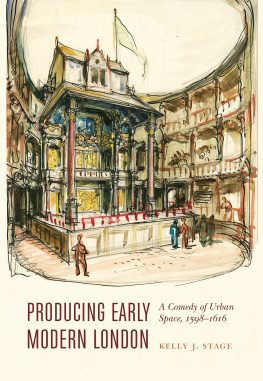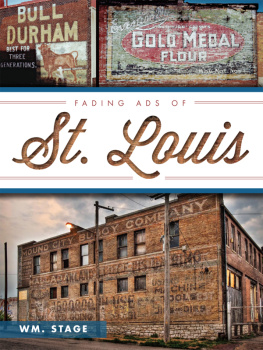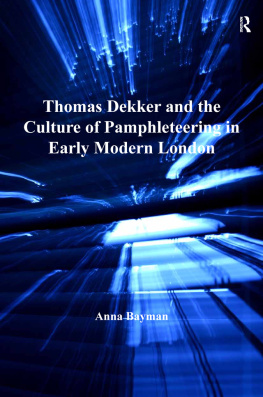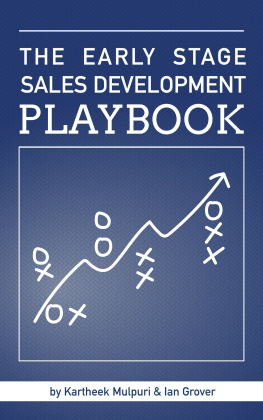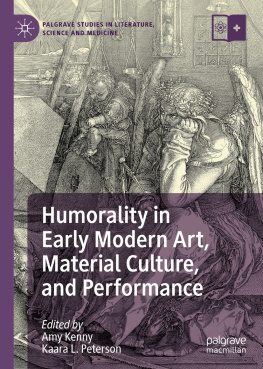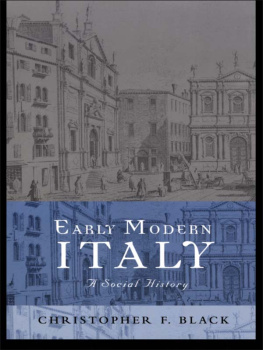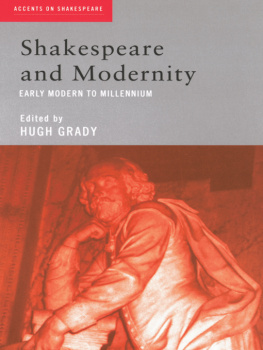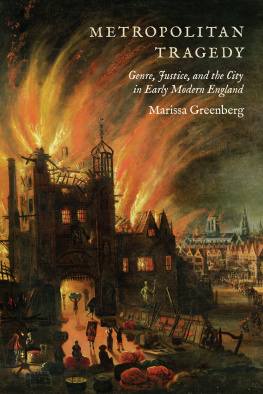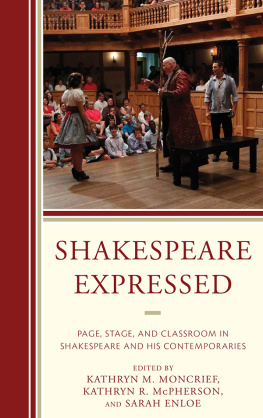Stage - Producing Early Modern London
Here you can read online Stage - Producing Early Modern London full text of the book (entire story) in english for free. Download pdf and epub, get meaning, cover and reviews about this ebook. City: England;London;Lincoln, year: 2018;2017, publisher: UNP - Nebraska, genre: Romance novel. Description of the work, (preface) as well as reviews are available. Best literature library LitArk.com created for fans of good reading and offers a wide selection of genres:
Romance novel
Science fiction
Adventure
Detective
Science
History
Home and family
Prose
Art
Politics
Computer
Non-fiction
Religion
Business
Children
Humor
Choose a favorite category and find really read worthwhile books. Enjoy immersion in the world of imagination, feel the emotions of the characters or learn something new for yourself, make an fascinating discovery.
- Book:Producing Early Modern London
- Author:
- Publisher:UNP - Nebraska
- Genre:
- Year:2018;2017
- City:England;London;Lincoln
- Rating:4 / 5
- Favourites:Add to favourites
- Your mark:
- 80
- 1
- 2
- 3
- 4
- 5
Producing Early Modern London: summary, description and annotation
We offer to read an annotation, description, summary or preface (depends on what the author of the book "Producing Early Modern London" wrote himself). If you haven't found the necessary information about the book — write in the comments, we will try to find it.
Producing Early Modern London — read online for free the complete book (whole text) full work
Below is the text of the book, divided by pages. System saving the place of the last page read, allows you to conveniently read the book "Producing Early Modern London" online for free, without having to search again every time where you left off. Put a bookmark, and you can go to the page where you finished reading at any time.
Font size:
Interval:
Bookmark:
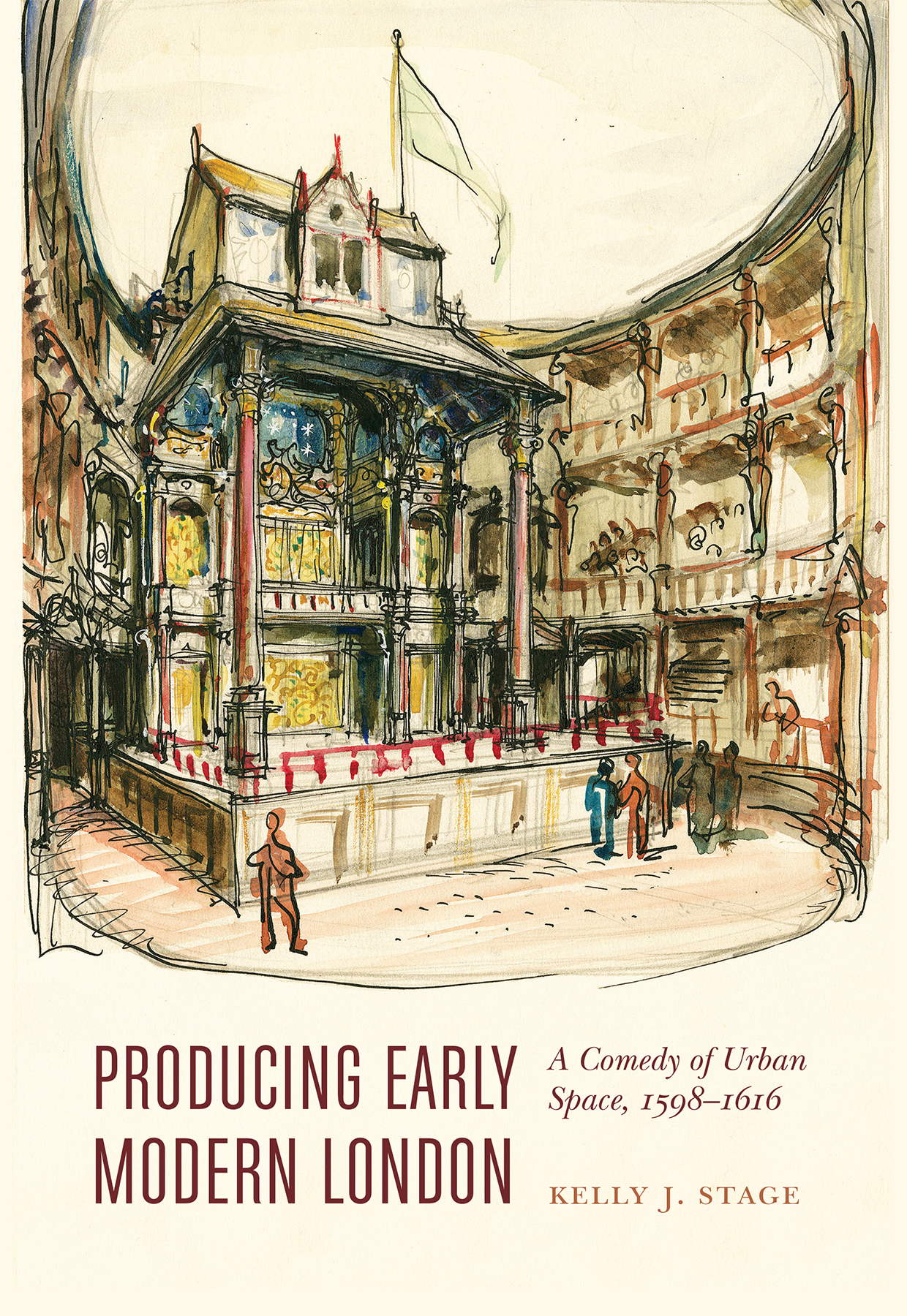
Kelly Stages excellent and focused close reading of plays is characteristically insightful, compelling, and provocative while simultaneously illustrating her key thesis about the existential dual gaze required by this specific genre of comedy.
Steven Mullaney, professor of English at the University of Michigan and author of The Reformation of Emotions in the Age of Shakespeare
Early Modern Cultural Studies
Series Editors
Carole Levin
Marguerite A. Tassi
Kelly J. Stage
University of Nebraska Press | Lincoln & London
2018 by the Board of Regents of the University of Nebraska
Portions of chapters 2 and 3 were originally published as The Roaring Girls London Spaces, Studies in English Literature, 15001900 49, no. 2 (Spring 2009): 41736; and Plague Space and Played Space in Urban Drama, 1604, in Representing the Plague in Early Modern England, edited by Rebecca Totaro and Ernest B. Gilman, 5475 (New York: Routledge, 2011).
Cover designed by University of Nebraska Press; cover image: Folger ART Box H688 no.1 pt. 31. Used by permission of the Folger Shakespeare Library under a Creative Commons Attribution- ShareAlike 4.0 International License.
All rights reserved.
Library of Congress Cataloging-in-Publication Data
Names: Stage, Kelly J., 1978 author.
Title: Producing early modern London: a comedy of urban space, 15981616 / Kelly J. Stage.
Description: Lincoln: University of Nebraska Press, 2018. | Series: Early modern cultural studies | Includes bibliographical references and index.
Identifiers: LCCN 2017031762 (print)
LCCN 2017042735 (ebook)
ISBN 9781496201812 (alk. paper: hardback)
ISBN 9781496204875 (epub)
ISBN 9781496204882 (mobi)
ISBN 9781496204899 (pdf)
Subjects: LCSH: London (England)In literature. | English drama17th centuryHistory and criticism. | TheaterEnglandHistory17th century. | Public spaces in literature. | Cities and towns in literature. | English drama (Comedy)History and criticism. | Literature and societyEnglandLondonHistory17th century. | BISAC: LITERARY CRITICISM / European / English, Irish, Scottish, Welsh.
Classification: LCC PR678.L58 (ebook) | LCC PR678.L58 S73 2018 (print) | DDC 822/.309358421dc23
LC record available at https://lccn.loc.gov/2017031762
The publisher does not have any control over and does not assume any responsibility for author or third-party websites or their content.
This book has been a long time in coming, and there have been many helpful interlocutors, readers, critics, editors, and supporters along the way. First, I must thank Carole Levin and Marguerite A. Tassi, the editors of this series, to whom I am exceedingly grateful and for whom I am exceedingly thankful. Alisa Plant at the University of Nebraska Press deserves special recognition for her patience and grace in shepherding me through the publication process. I am also especially grateful to Courtney Ochsner, Ann Baker, and Elaine Otto at UNP for their careful work. Any remaining faults of this book are entirely mine.
This project began under the patient guidance of my friend and mentor Ernest Gilman, to whom I owe far more than any acknowledgment will ever repay. Additional careful reading and support from John Archer were central to the shaping of the project, as was commentary from John Guillory. Opportunities and institutional support to attend seminars, symposiums, and classes have been essential at all stages of this project. A seminar under Roslyn Knutson at the Folger Institute provided an unforgettable introduction to theatrical commerce and the repertory of early modern English theater many years ago. I was also lucky to take a course under Natasha Korda, which proved fundamental to this project and to my scholarly development. A fantastic summer seminar, led by Paul Yachnin and Steven Mullaney, with the Making Publics project (MaPs) and an amazing cohort of scholars, shaped the book in its later development and led to many productive conversations and revisions. Additionally, I am very grateful for support to attend a symposium jointly sponsored by the Folger Institute and the MaPs project, Theatre and the Reformation of Space in 2009. A Shakespeare Association of America seminar led by Rebecca Totaro, as well as Rebeccas meticulous and wonderful feedback, greatly improved important parts of the book. Insights and careful comments from two readers for the University of Nebraska Press have been invaluable in revision.
Over many years, some dedicated souls have seen this book in many different forms. I am forever grateful to Elizabeth Bearden, David Landreth, Nora Martin Peterson, and Julia Schleck for their kindness, intelligence, and advice. They are all excellent scholars but even better friends and readers, and their attention to my work has been a great gift. Conversations with Ray Ball, Stephen Buhler, Jeffrey Doty, Susan Harlan, James Mardock, Meg Pearson, and Amy Rodgers have benefited this project and my sanity over the years. Jacqueline Clark has listened to me talk for more hours than I can count; that she continues to listen has meant the world to me. My brother, Michael Stage, has read more of this book in more different versions than anyone, and his commentary has been sage and true every step of the way. Even more important, he has always been my cheerleader and that has mattered as much as anything. I have subjected Thomas Lange to more talk and pages on early modern literature than he ever bargained for. I am so lucky to have his support, his patience, and his endless coffee-making. I am grateful to my familyHeather, Dad and Kathy, Uncle Jeff and Tori, and Grandmother Barbarafor their many questions, interested conversations, and cheerful encouragement over the years. Finally, and at long last, this book is dedicated to my mother, Pamela R. Stage and my grandfather, Donald J. Russo. Neither of them will get to see this book, but it would not have happened without them. They both taught me to love theater, to read widely, and to work hard. Thank you.
On a chilly winter night in London, I tucked myself into a tiny spot on a hard wooden bench in the first floor gallery of the Sam Wanamaker Playhouse. I was there to watch Francis Beaumonts The Knight of the Burning Pestle (1607), and the brand-new theater was buzzing. My last-minute ticket purchase had me wedged between a wall and a Londoner, and I sat about fifteen feet from the modest sized theaters stage left. While the audience settled, actors hammed up their pre-show work of lighting candles in chandeliers. When raised up, these bathed the stage in warm, flickering light. The Wanamaker is an intimate, ornate, gorgeous thing. It is constructed of oak (and, at the time, still smelled of it), and it encourages visitors sitting on bare benches to think they will experience something like a night in one of Jacobean Londons private theaters. I waited in the near-dark, wondering what would happen when The London Merchant (the play within The Knight of the Burning Pestle) would begin and three members of the audience would interrupt and ask for a different playa knightly talestarring a London grocers apprentice.
Although the Wanamaker felt like it could be the Blackfriarswhere The Knight of the Burning Pestle premiered and flopped in 1607my feeling of authenticity that night was misplaced in at least two ways: first, although the planners for the Wanamaker initially thought they were using drawings for a never-built Jacobean private theater in their design, they were wrong. The project managers later realized the drawings were by John Webb, not Inigo Jones, the Jacobean architect. The designs were actually for a much later Restoration-era theater modeled on Jacobean Being together in that theater meant the audience had made a conscious choice to see a play with specific performance limitations and rules. The theater largely eschews modern lighting, sound effects, makeup, costuming, and even comfortable seats. These facts of practice and of concrete physical realityhow the place looked, smelled, sounded, feltas well as the mind-set, experience, and collective energy of the individuals present, dictated what that experience of coming together in space, or of the theater as a place, meant for those few hours I sat in the Wanamaker.
Font size:
Interval:
Bookmark:
Similar books «Producing Early Modern London»
Look at similar books to Producing Early Modern London. We have selected literature similar in name and meaning in the hope of providing readers with more options to find new, interesting, not yet read works.
Discussion, reviews of the book Producing Early Modern London and just readers' own opinions. Leave your comments, write what you think about the work, its meaning or the main characters. Specify what exactly you liked and what you didn't like, and why you think so.

